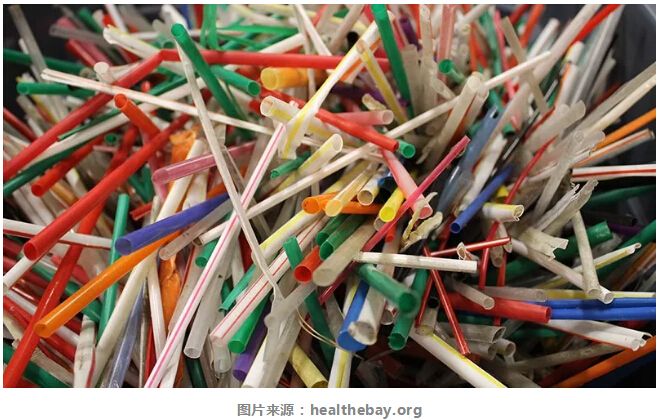


You might not think much about the plastic straw in your mouth when you take a sip from your drink cup on your way to the cinema or at lunch, but these small pieces of plastic can have a large effect on the natural environment.
Amid the nationwide call to reduce plastic product usage to the protect environment, restaurants in Beijing and Hong Kong are now taking action by not providing plastic straws.
In Hong Kong’s Café de Coral, a fast food restaurant chain that serves both Chinese and Western foods at a budget price, has started to encourage its customers to bring their own tableware in lieu of plastic straws. The new policy took effect on the first day of 2019 in 164 locations.
Fairwood, another popular restaurant in Hong Kong, stopped providing plastic straws in November 2018. “Most customers understand why and some even praise us being environmentally friendly,” said Li Yuxia, a cashier at Fairwood.
In Beijing, close to a dozen McDonald’s restaurants have stopped providing plastic straws since last November. The move is popular with many people but not everyone is happy.
“Customers want to drink with straws and eat noodles with eating utensils. If these things aren’t provided, it’ll cause dissatisfaction among some customers,” said Yu Xuerong, executive president of the Catering Industry Association of Jiangsu province.
Huang Wei, an associate professor at the School of Energy and Environment at Southeast University, explained that straws are mainly made of polypropylene, which has outstanding resistance to chemicals, which means it takes years for plastic straws to degrade.
The move by the two Chinese cities comes amid the nation’s call to reduce the usage of plastic products, including plastic bags.
Plastic products were introduced into the everyday life of Chinese people amid the reform and opening-up, which brought with it economic boom. The traditional shopping baskets and bags were then gradually replaced by plastic bags, which are cheaper and more convenient for both sellers and customers.
The number of plastic bags alone skyrocketed to 3 billion in 2017, including 1 billion plastic bags used for grocery shopping, New Weekly magazine reported. The same year, China issued the nation’s first-ever restriction on plastic bag usage, banning sales and production of plastic bags thinner than 0.025mm and forbidding all retailers from offering free plastic bags.
As citizens grew increasingly aware of environmental protection, more and more people not only started avoiding plastic bags usage, but also did things to reduce other plastic products, especially the usage of plastic tableware.
Although the promotion of degradable tableware is still steadily advancing, the current action of restricting straws has not been carried out in most places, Yu noted.
The biggest obstacle is that there is no mass production of materials that can completely replace plastic straws, as it is hard to make something that is high quality and cheap with the same resistance qualities.
 Fire brigade in Shanghai holds group wedding
Fire brigade in Shanghai holds group wedding Tourists enjoy ice sculptures in Datan Town, north China
Tourists enjoy ice sculptures in Datan Town, north China Sunset scenery of Dayan Pagoda in Xi'an
Sunset scenery of Dayan Pagoda in Xi'an Tourists have fun at scenic spot in Nanlong Town, NW China
Tourists have fun at scenic spot in Nanlong Town, NW China Harbin attracts tourists by making best use of ice in winter
Harbin attracts tourists by making best use of ice in winter In pics: FIS Alpine Ski Women's World Cup Slalom
In pics: FIS Alpine Ski Women's World Cup Slalom Black-necked cranes rest at reservoir in Lhunzhub County, Lhasa
Black-necked cranes rest at reservoir in Lhunzhub County, Lhasa China's FAST telescope will be available to foreign scientists in April
China's FAST telescope will be available to foreign scientists in April "She power" plays indispensable role in poverty alleviation
"She power" plays indispensable role in poverty alleviation Top 10 world news events of People's Daily in 2020
Top 10 world news events of People's Daily in 2020 Top 10 China news events of People's Daily in 2020
Top 10 China news events of People's Daily in 2020 Top 10 media buzzwords of 2020
Top 10 media buzzwords of 2020 Year-ender:10 major tourism stories of 2020
Year-ender:10 major tourism stories of 2020 No interference in Venezuelan issues
No interference in Venezuelan issues
 Biz prepares for trade spat
Biz prepares for trade spat
 Broadcasting Continent
Broadcasting Continent Australia wins Chinese CEOs as US loses
Australia wins Chinese CEOs as US loses